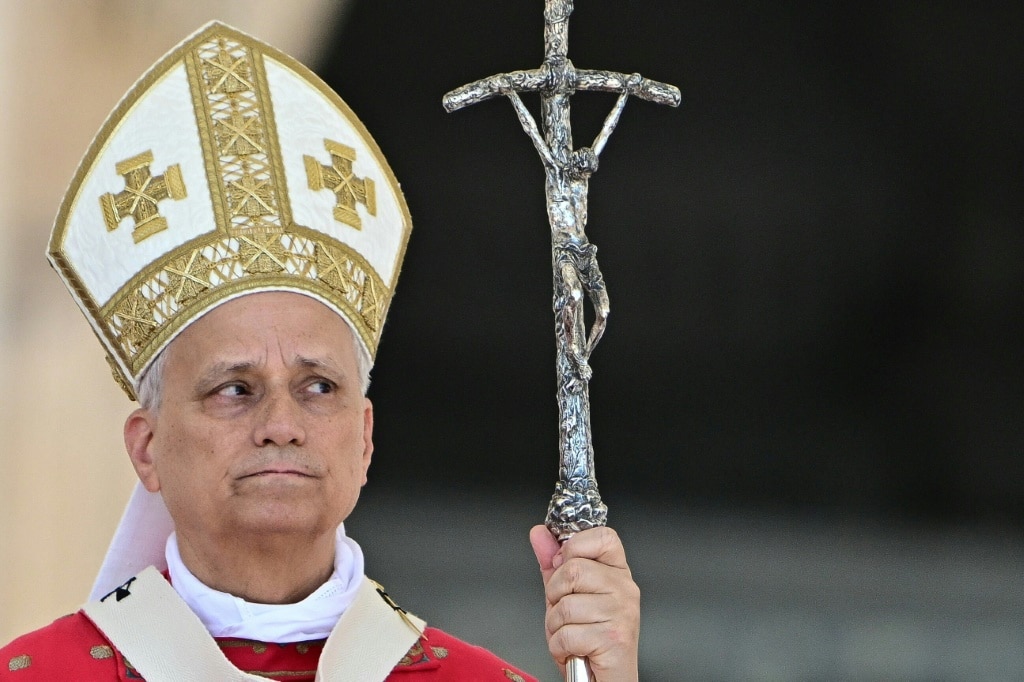Pope Leo XIV draws on tradition in new era for church
In a return to tradition, Pope Leo XIV personally bestowed woollen stoles on 48 newly appointed archbishops from across the world.

In a return to tradition on Sunday, the Pope personally blessed and bestowed the “pallium’’, a white woollen stole with six small black crosses, worn over the shoulders when vested for mass, on 48 newly appointed archbishops from across the world.
Leo XIV did so at a mass to mark the martyrdom of saints Peter and Paul under Emperor Nero, between AD 64 and 68. Peter was crucified upside down beneath what is now the main altar of the Basilica that bears his name; Paul was beheaded.
Before the palliums are given out, they are placed beside St Peter’s tomb to symbolise the archbishops’ connections to the apostolic succession and their role as shepherds of their flocks.
Pope Francis altered the practice from 2015 to 2025, blessing the palliums at a mass attended by the archbishops then sending the garments home with them, to be conferred in their local cathedrals by papal representatives. His aim, he said, was to “greatly favour the participation of the local church’’.
The lamb’s wool used in the palliums, Benedict XVI said in his first mass as pope in April 2005, represents “the lost, the sick, or weak sheep which the shepherd places on his shoulders to carry to the waters of life”.
Palliums have been worn by popes and bishops in charge of major archdioceses since at least the 6th century.
Part of the tradition involves a pope blessing two young lambs raised by Trappist monks outside the city. After being bathed, the pope blesses the lambs on January 21, the feast of St Agnes, before entrusting them to Benedictine nuns in Trastevere in Rome. In the European spring, the lambs’ wool is shorn, for use in palliums later in the year.
In going about his work, Leo is incorporating some of Francis’s changes while quietly drawing on tradition. When he appointed his first Chinese bishop earlier this month, he did so under Francis’s 2018 deal with the Chinese Communist Party, which thawed decades of estrangement.
Unlike previous appointments made unilaterally by China, Leo appointed and announced Bishop Joseph Lin Yuntuan’s promotion as auxiliary bishop of Fuzhou, in southeastern China. The CCP accepted it afterwards.
Unlike most bishops selected by the Chinese who favour clerics of the state-sponsored Patriotic Association “church’’, Bishop Lin was previously a bishop and priest of the “underground’’ Catholic Church, aligned with Rome and disapproved of by the CCP.






To join the conversation, please log in. Don't have an account? Register
Join the conversation, you are commenting as Logout